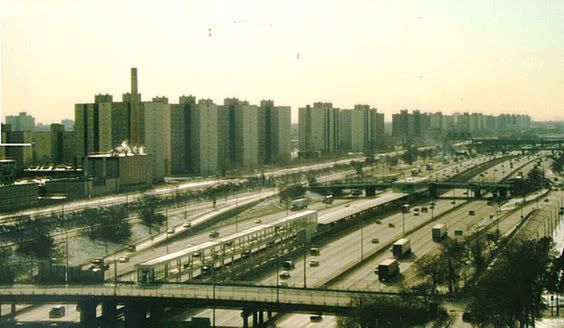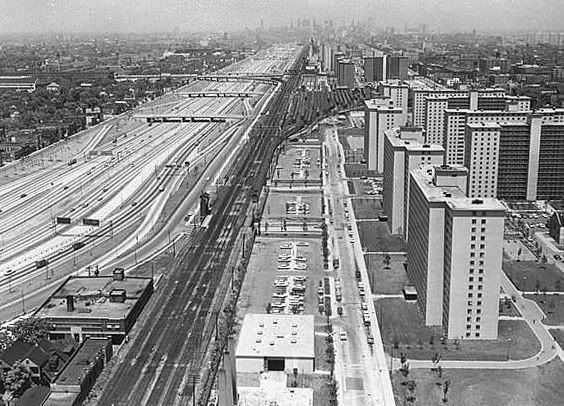Quote:
Originally Posted by Canopus

That may be but I think it is a mistake to associate "community" with structure necessarily. Communities are made up of people not buildings and they change with time, generations and the state of the city/nation. Rarely do they remain homogeneous over say 50 years and that should not be expected or attempted.
|
I was referring to the people... of course. There is a much stronger sense of community there than in any place I ever lived in the South End... where "community" is, actually, mostly completely non-existent. My point is that they have a good starting point to improve things... a community of people who care about their community and about each other. But they're fighting an uphill battle due to the concentration of poverty and all that that brings with it. Which is why I think mixed-income makes sense.
Quote:
Originally Posted by Canopus

Maybe. Again though, while it sounds like a good plan, I balk a bit at assuming social improvement necessarily follows built improvements.
|
I fully agree, but the 30/30/30 mix of own/affordable/public is not a built improvement is it? It's not a "design" ideology. It's a socioeconomic change.
Using the Robert Taylor example again, these were the stats at one point:
- 27,000 residents in a development planned for 11,000
- 95% unemployed
- 40% single female parent households earning less than $5,000 / year
- 99.9 percent African-American
That's a recipe that doesn't have a lot of good outcomes. To your point though, it wasn't because of the architecture. Altho' the architecture didn't help. It had to do with social changes, racism and neglect. It was a "perfect storm" of issues that can't be boiled down simply... but a few things which contributed were changes in the 60's that allowed blacks to move into white neighborhoods. So those who could afford to all left. Also, Ronald Regan completely gutted HUD funding... so the CHA had no money to maintain the buildings. Then the crack economy took over in the 80's and cops would not even venture into the area. So the whole development became an island, cut off from the rest of the city... with it's own underground economy and policing (i.e. gang policing). There were teenagers living in Robert Taylor that had never seen a white person in their lives?! Total "segregation".
Anyway, I'm rambling somewhat off topic... but the point is that I think any solution is multi-faceted. It's about built form but also about services, people, facilities, programs, etc. The funny thing about Robert Taylor is that is was designed and built based on Le Corbusier's utopian vision of "islands in the sky".Didn't exactly turn into a utopia

It's the same vision that gave us developments like Scotia Square.
Quote:
Originally Posted by Canopus

All in all, the US square issue is one fraught with what I believe are BS racist overtones no matter what anyone suggests as well as a tendency by planners to take a left leaning, form based approach to most anything instead of trying to tap into what may already exist.
|
Yup. There are a lot of people who argued that Robert Taylor should stay too. It didn't have to turn out like it did. It had a lot going against it... 26 high rises jammed between a 16 lane highway and a railroad track. But it didn't have to go that badly. The area was ignored by the housing authority and the cops and pretty much everyone.
Here are some pics. It ain't no Uniake Square! Sorry again that this is a little off topic.





